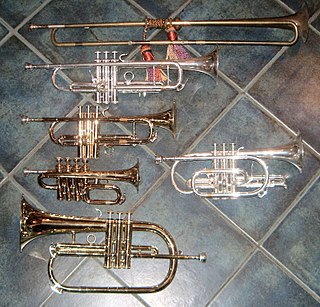
A brass instrument is a musical instrument that produces sound by sympathetic vibration of air in a tubular resonator in sympathy with the vibration of the player's lips. Brass instruments are also called labrosones or labrophones, from Latin and Greek elements meaning 'lip' and 'sound'.

The euphonium is a medium-sized, 3 or 4-valve, often compensating, conical-bore, tenor-voiced brass instrument that derives its name from the Ancient Greek word εὔφωνος euphōnos, meaning "well-sounding" or "sweet-voiced". The euphonium is a valved instrument. Nearly all current models have piston valves, though some models with rotary valves do exist

Milton Byron Babbitt was an American composer, music theorist, mathematician, and teacher. He is particularly noted for his serial and electronic music.

The six Cello Suites, BWV 1007–1012, are suites for unaccompanied cello by Johann Sebastian Bach. They are some of the most frequently performed and recognizable solo compositions ever written for cello. Bach most likely composed them during the period 1717–23, when he served as Kapellmeister in Köthen. The title given on the cover of the Anna Magdalena Bach manuscript was Suites à Violoncello Solo senza Basso.

Walter Hamor Piston Jr,, was an American composer of classical music, music theorist, and professor of music at Harvard University.
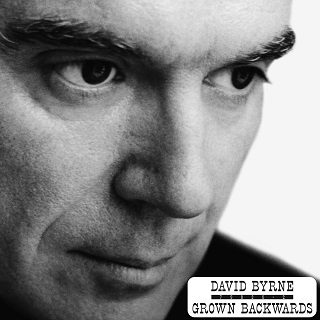
Grown Backwards is the seventh studio album by musician David Byrne, released on March 16, 2004.
Appalachian Spring is a musical composition by Aaron Copland that was premiered in 1944 and has achieved widespread and enduring popularity as an orchestral suite. The music, scored for a thirteen-member chamber orchestra, was created upon commission of the choreographer and dancer Martha Graham with funds from the Coolidge Foundation. It was premiered on Monday, October 30, 1944 at the Library of Congress in Washington D.C., with Martha Graham dancing the lead role. The set was designed by the American sculptor Isamu Noguchi. Copland was awarded the 1945 Pulitzer Prize for Music for his achievement.

The Elias Howe Company was a 19th and early 20th century musical firm located in Boston, USA and founded by Elias Howe, Jr. (1820–1895). His company was successful, selling more than a million copies of his music instruction books by 1892. Howe was cousin to the inventor of the sewing machine and related to Julia Ward Howe, composer of The Battle Hymn of the Republic.
Samuel Hans Adler is an American composer, conductor, author, and professor. During the course of a professional career which ranges over six decades he has served as a faculty member at both the University of Rochester's Eastman School of Music and the Juilliard School. In addition, he is credited with founding and conducting the Seventh Army Symphony Orchestra which participated in the cultural diplomacy initiatives of the United States in Germany and throughout Europe in the aftermath of World War II. Adler's musical catalogue includes over 400 published compositions. He has been honored with several awards including Germany's Order of Merit – Officer's Cross.
Torstein Aagaard-Nilsen is a Norwegian contemporary composer.

Joseph Henry Douglass was a groundbreaking African-American concert violinist, the son of Charles Remond Douglass and Mary Elizabeth Murphy, and grandson of abolitionist Frederick Douglass.

Sergiu Natra of international reputation was a most creative and original classical composers.
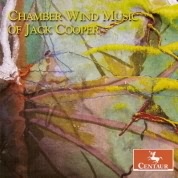
The Chamber Wind Music of Jack Cooper is the first classical/new music studio recording featuring numerous performing artists recording chamber wind music of the composer on the Centaur Records label.
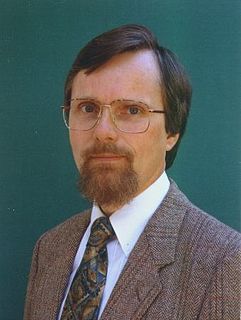
Howard J. Buss is an American composer of contemporary classical music. Buss’ works include instrumental solos, chamber music, symphonic, choral, and band works. His music has received awards including the 2011 Lieksa (Finland) Brass Week Composition Competition, the 2015 American Trombone Workshop National Composition Competition, the National Flute Association’s Newly-Published Music Competition, the Erik Satie Mostly Tonal Award, State of Florida Fellowships, and ASCAP Plus Awards.
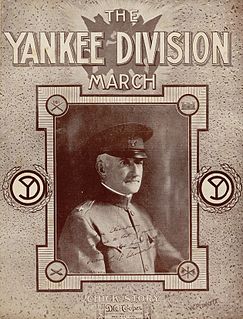
The Yankee Division March is a World War I march for piano written by Oliver E. ("Chick") Story at the end of 1918, shortly after the armistice. A manuscript was copyrighted on December 11, and a first edition, published by D. W. Cooper, was copyrighted the next day. In this, issued in haste, the music occupies three pages, and a very simple black and white cover was designed by E. S. Fisher, featuring a stylized version of the Great Seal of the United States. Sometime in February 1919 Cooper issued a second edition, with the music on two pages and a more elaborate cover designed by V. C. Plunkett and featuring a photograph of General Clarence Ransom Edwards taken by the Bachrach Studios.
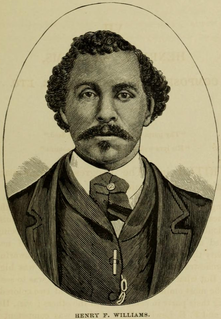
Henry F. Williams was a musician and composer in Boston, Massachusetts, in the late 19th century. He was one of two black musicians to play in the orchestra at the 1872 National Peace Jubilee. His arrangements received widespread popularity. Later in his life he was primarily a music teacher. Williams has been called the second best known black composer of his time after Frank Johnson, with whom he worked.
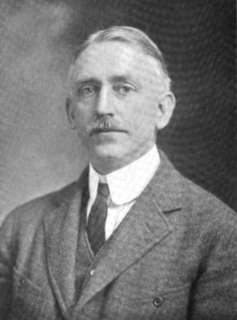
Percy Lee Atherton (1871–1944) was an Harvard educated American composer and a music teacher. He was born September 25, 1871 in Boston, Massachusetts, the son of William Atherton (1821-1891), a Boston leather merchant and Mary Edwards Dwight.
Mabel Madison Watson was an American composer who taught piano and violin students. She was born in Elizabeth, New Jersey, to James Madison Watson and Emma Hopper Watson. Her father wrote several school textbooks, and children's author Emelie Poulsson lived with the Watson family during Mabel's childhood.
Herfurth is a surname. Notable people with the surname include:













